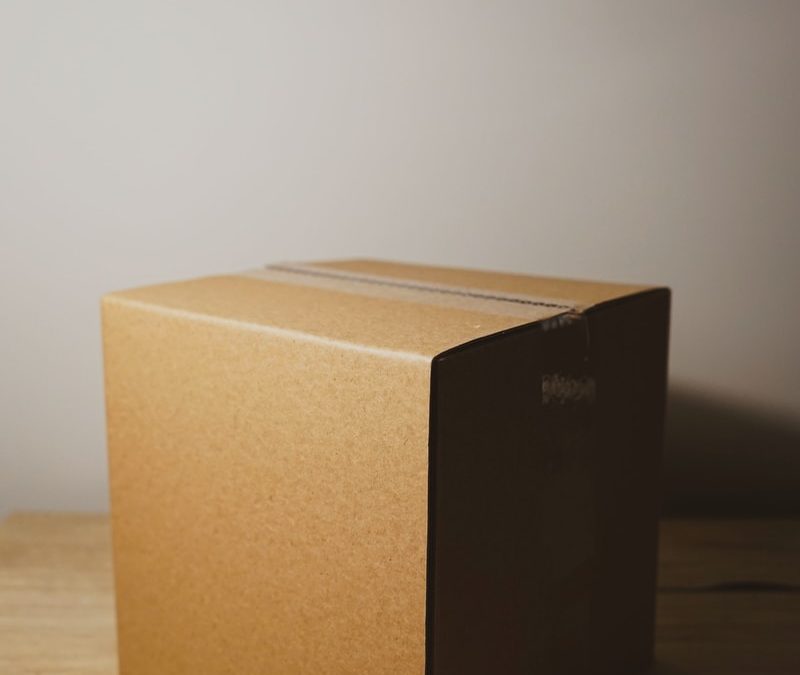
by admin | Mar 31, 2022 | Declutter
Recently we moved home. In the two months of preparation I deliberately kept a journal of the decluttering that needed to be done.
First week of our move
Yesterday I was at work in my office. The word office for this room might seem somewhat grand because it also doubles as a store room for furniture that I have not dared throw away, just in case it might be useful one day when a tenant needs it. So in addition to my much loved roll-top pine bureau with plentiful drawers and cubbyholes, you will see two enormous vintage 1940's wardrobes that I am hanging on to just in case I decide one day to add them into some of the upstairs bedrooms in this building. I have two double mattresses, a nicely upholstered Edwardian straight backed hall seat for two, a solid wood filing cabinet and, in the alcoves to either side of the fireplace, a pair of tall glass fronted book cabinets.
The ample floor space in this room is normally free of clutter, but this week I have made numerous car trips into work with the boxes that were filling my garage at home. I have been doing this before we move house - right in the middle of writing a book about decluttering and letting go - as apart of a deliberate decision to live with less and in a space that is better suited to the life we want to live.
I have eighty boxes to work through and the emotional pain of doing this is significantly more than I was expecting. These are the boxes that I have dragged around with me between homes for a number of years and which I have to open now that we are settling somewhere. I understand that this is not normal, that someone my age would by now have perhaps cracked the clutter code and found a way to let go of so much. I have never found this easy, and have always attached emotions, possibility or potential re-use to things that I have had in my life.
Box One
I opened the first box and realised that not one of several thousand sheets of papers in any of the ring-bound folders in the box were to keep. Most of them had a keep-until date that had passed at least two years before. I had kept them as the Revenue service always ask you to keep the paperwork for a business for seven years after the year represented by those same records. I hadn't thrown them away because I hadn't dared approach the task of sorting, sifting and saying goodbye to them. The box of files weighed fully 20 pounds. I separated the paper from the files and recycled it all. So far, so good. I can do this.
Box Two
Two dozen used A4 pads of lined writing paper, 65 usable pens, a hole punch, a vintage wood and brass manual coffee grinder in good order that I had been given by friends in Belgium when I was perhaps eighteen. That was some decades ago. I had wondered where it was! The pads of notepaper went onto a stationery shelf, and the pens went into a plastic bag for donating to my local library. They are always running out of pens and I love to work there on new manuscripts, so this feels like a good outcome.
Box Three
Some small card boxes of new one inch screws. A thoughtful 'remember me' gift from a former girlfriend which had been sent to me unannounced at my new address the Christmas after we broke up. It was a finely sculpted wooden head on a stand, designed to take a pair of reading glasses. Cute, but completely forgotten. It was still in the padded bag it had arrived in and a handwritten note "Good luck in your new life x." I felt sad, pleased to be away from that, and disappointed in myself that I had carried the object and the associated negative karma of it around in my life for the subsequent seven years. Next to this another envelope containing an almost new looking set of souvenir postcards from a visit to Uzbekistan that I had made 22 years before! This was a total surprise.
I could not remember buying them or perhaps having been given them by my hosts for that trip. A box of marbles from my own childhood. A wooden chest containing an old pub game and which I remembered buying in a beautiful antique shop on a sunny day in Monmouth four years ago. I bagged up the love gift, the marbles and the pub game and placed them in a pile for the charity shop, our goodwill store.
Going through just these three boxes took me almost an hour. I calculate that more than two thirds of the stuff within the boxes, by volume, was binned. The pens can be used by the library staff and the rest goes to have a new life via the charity shop. When I saw the note with the wooden gift I didn't cry, but I was upset and sad. Sad that something once so good and joyful did not last. Upset that I had hung onto an item knowing I would never use it, believing since opening it that I would have returned it to her, yet consciously allowing it to take up physical space, less aware of the subtle emotional toll."
What are you hoarding?
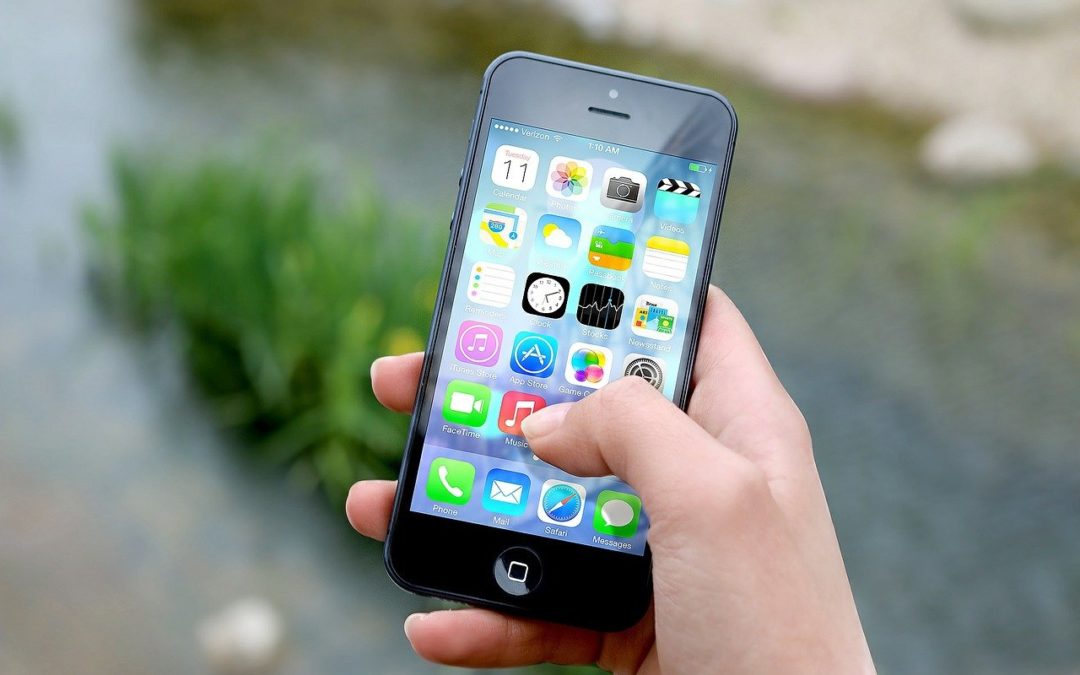
by admin | Mar 17, 2022 | Declutter
It's one thing to take practical actions against continuing to store data that no longer serves you, it's quite a different matter to behave in ways that waste your time or pull you away from those things you consider important.
1. Cut you Social Media Addiction. It's time for you to impose a set limit on the amount of time you spend spend on social media, regardless of which platforms you are a regular or even heavy user of. Rather than go cold-turkey overnight, you are better to fix an amount of time and start with this. How many hours a day are you connected to your social platforms? Cut an hour from that tomorrow and work forward from there. Aim towards a morning catch up and an evening catch up, perhaps twenty minutes on each. You do not need any more than that. How different might your life be if you were to take the time 'spent' on Social Media and move it to activities that increase your personal health, well being and actual happiness? Social Media is not the same as a 'social life'.
2. Games. Addictive, fun and time suckers. Scrabble, Weekend, Game of Thrones, Medal of Honour, Chess, Candy Crush, etc. Do you have to play a game? What is it and why do you play it? Rather than living in escapism, can you let it go and instead use your time to work on your goals for the real world?
3. Twitter. Do you have 20,000 followers and post three times a day? Have you posted 3,000 times this year? Why? Other than a high when someone likes, follows or retweets, are you getting some real value from this activity? I dare you to ask your family and actual friends if they would prefer your time and attention.
4. Facebook. These 623 Friends are not your friends. When you need to cry over a bereavement they will not all be there. When you are lonely and scared about something talk to a real friend, grab a coffee with a real person and just 'talk'. If you are nervous about what people think, before you cull the numbers, start by clicking the 'Unfriend' button. They can still follow your activity, but you no longer get the updates about lives you are not really interested in. Could you consider the fact that a post once or twice a week is more genuine than four posts a day. Are there twenty people you want to spend time with this year? Pick up the phone and call them. If you really do care about a video showing a cat jumping away from a cucumber, or a beautiful family that you have never met showing off with the graduating daughter, or the poolside party life, ask yourself why these things merit your attention in a life that only has a set number of hours and minutes. Me, a cynic? No. I use Facebook and Instagram sparingly as a networking tool, but only for a daily average of 15 minutes twice a day.
5. YouTube. Great for millions of videos and a ton of music. It will allow you to throw away the majority of your music on CD and to dispose of your DVD collection, if you still have one. Also a great place for learning material, instructional video, motivational ideas, how-to content and inspiring speeches and educational TED talks.
Ok, that's my rant over and I hope you will please forgive me. I enjoy Pinterest to get inspiration for home decor, Instagram for selling vintage books and Facebook mainly for the messenger facility when I am at a desk and actually have wifi switched on. But I like to limit my non-email online time to no more than 30 minutes each day. There is so much more to do.
Remember that decluttering is not just about the physical items and belongings that take up space in your home environment. The massive digital distraction posed by social media is a massive potential drain of your time and focus away from what matters for you in leading a value driven life. If you want to see radical change in your daily life, just start to switch off your wifi access for several hours each day and watch how much quality time you find. Notice the effects of this on your sense of self and what is important to you in your own life. You are NOT your social media accounts!
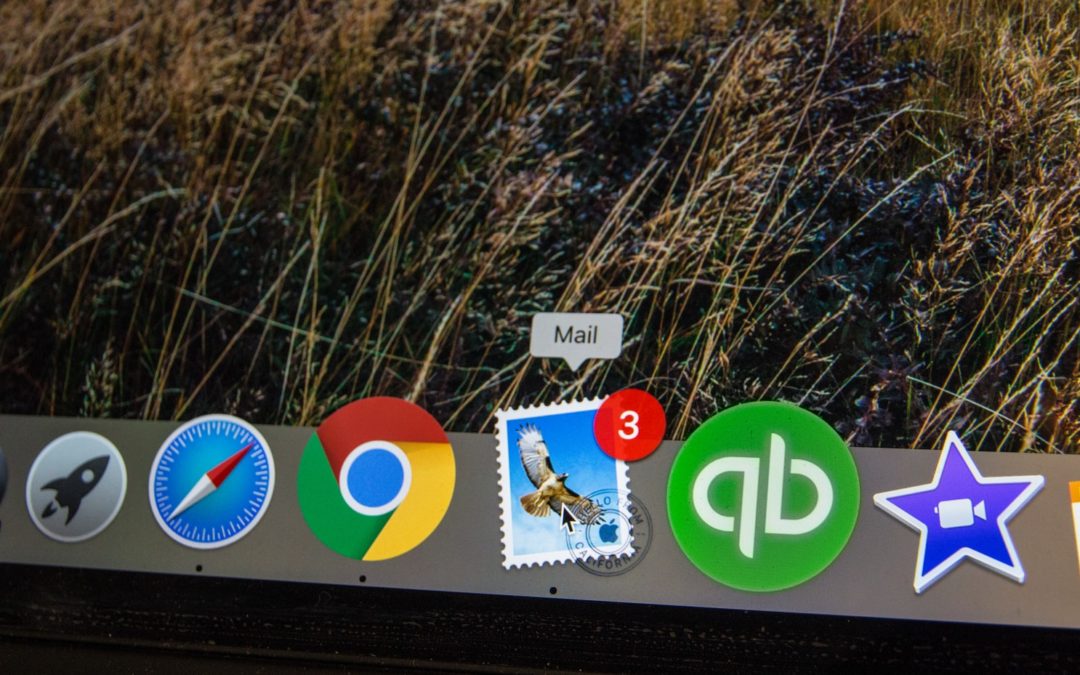
by admin | Mar 3, 2022 | Declutter
In this 'always on' digital world we have access to it is easy to make the mistake of thinking that we have to respond to each thing as it happens. We even have to consider whether something needs a response at all and how to identify and cut out such digital junk. For such accountability you need to establish the personal approach you will take to use of your cell phone or other device, and look closely at the time you allocate and the rules you set yourself for what you consider to be productive and realistic.
For everything else that is physical here are some ideas for making the best use of your work environment and digital equipment, as well as the invisible space that your data occupies.
1. Organising your folders. Be cautious of any folder still called New Folder and check the contents before you rename it. If you can't find what you want it may be hiding in a folder that is incorrectly labelled. Have sub folders within a Group folder. Each time you name a folder it will then save alphabetically, so make sure you know your Group folders.
Have a Group folder for each role that you have in your life. For example, mine include : Partner, Family, Household, Author, and Landlord. Inside each of these you can have multiple separate folders i.e. Family might contain Budget, Diary, Vehicles, Holidays, School and Investments.
2. Old Documents. Open each folder and look at the documents. Do you need to keep each one? How many are no longer necessary? Is some of the information worth keeping. Delete where you can and free up storage space, but also the mental distractions from continually sorting. If in doubt create an Archive folder and move some documents in.
3. Email Inbox. Just as you go through your post each day, apply the same principle to your inbox. Delete what you know you will not open. Keep your Inbox to the minimum. Once read it should be moved out of the Inbox and to a Subject Folder that is indexed by category and easy to find. Have relevant Sub Themes to a Folder. Have specific times in a day - or even just one time - when you will look at email.
4. Photos. Keep the ones that you love, that really mean something and delete all the others. If some pictures might mean something good for someone else, check if they want them and email them across, cleaning them from your storage afterwards.
5. Old Apps and Software. Whether on your phone or desktop make sure to remove the programmes you don't use, don't want or which you cannot remember installing. You can delete a link but must also check to uninstall the actual software you don't want. This will continue to release space on your hard drive.
6. Icons. On your home screen or desktop the images that sit there take up screen space and distract you from a clean environment. Tidy them up and remove them where you can.
7. Films and Music. These are huge data users and so much is now available on listening platforms either free when in a wifi zone or by subscription if you think it work spending the money to carry the music with you wherever you go. You can also use YouTube and various platforms for revisiting the tracks and films you want.
8. USB sticks. Check your desk drawers and bag pockets for these. These are powerful and small, often carrying so much more data than you can remember by name. They are easy to lose, precisely because of their size. Open each one you have and check the files and documents stored. Do you need them and if you do, have you already got them on your main laptop or desktop machine? Could the same information or files be stored in the cloud? Keep you empty USBs in a place where you might also keep fresh stationery and pens in your desk.
9. Email Newsletters. Remove yourself from all the lists where you are no longer interested or where the content is no longer relevant for you. Find the unsubscribe link.
10. Email accounts. There are a few schools of thought on this one. The minimalist will go for a maximum of two accounts as being enough, one for work and the other for personal or social. I am happy with one for my private life and several others for each my different working or business roles. Find what you consider is simple and obvious to your circumstances.
11. Contacts Information. Sit down to review your Contacts file. Delete the names you no longer need, are not meeting any more or where you consider there is no longer a value. If you are an inveterate networker and think that everyone might at some point, you will of course struggle with this exercise. Be brave and delete. Or contact them and save or delete based on their response to your offer.
12. Password Info. Some swear by a single password for everything. Others like to find a common theme and work with a slight adjustment to their core password structure but with a tag or reference that might be linked to the name of the website they login to or visit. If you have accounts where you cannot remember the log in detail, face the fact that you perhaps don't make much use of the site and delete the entire account or create a generic password you can remember through a memory jog word or question.
13. Bookmarks. A useful facility, but easy to end up with pages on here that you no longer visit. Delete the old stuff and make the bookmark relevant.
14. Desktop Background or Wallpaper. You see this every day so make it work for you. Get rid of icons you don't want and no longer use. Streamline this page so it shows you only what you want.
15. Physical digital devices. The longer you have been online the more old pieces of kit will be filling your desk drawers and cupboard space. Pull it all out and know that most of it has been made simpler, made cheaper or made to work faster than the old items you can now throw away.
16. Disc storage. This is simple enough to do on your PC or laptop. Go to Accessories from your Start point. Then System, Tools and Disc Clean-Up.
17. Internet Browser. If you are getting easily distracted by news items or sports stories when you log on, then choose a simpler version of the browser. Remove yourself from all the tabbed interests available.
18. Downloads. You may have hundreds of these cluttering your data space. Click on Downloads, look at what you have. For the items that are worth keeping move them to a relevant folder to find them again. Bin everything else.
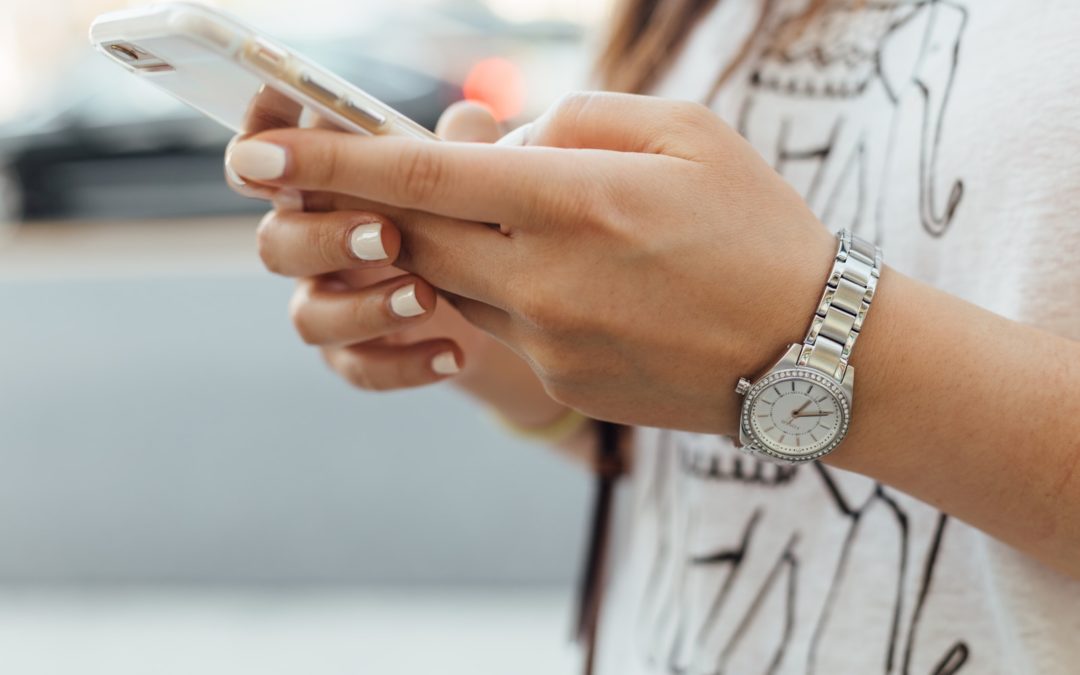
by admin | Feb 17, 2022 | Declutter
Email stress. Social media addiction. Alerts, alarms and reminders to do more and to do it now. In our current state of digital connection and constant online access there is always a temptation, a distraction away from the core values we once driven by. There was a time, quite recently, when we as humans didn't have mobile phones and the quality of life was different because we could not be reached so easily and we could not pry on others in the same way we can now with the phone in our hand. Now that we have the technology that brings such opportunity, it's also worth adopting some new behaviours and approaches to reduce the stress.
How many times this week have you sat with your laptop or device and figured you would go online for ten minutes before getting busy with a an important task? Once you had logged on, how quickly did you move to the main job that needed your attention? You and I both know the answer! Social media is a leech on your productivity unless it is your paid job.
Apparently, we can check our mobile phone as much as 150 times in a day! This week I read an article which claimed we spend an average of two hours and forty minutes scrolling through social media in a day! Are you above average?
If you are struggling with the digital pressure on you, then it's time to take practical steps to simplify your connection to the problem and give you back the control.
In looking at digital clutter and the overload it brings, I want to to take you to your tech equipment and look at the games, software and apps which eat at your available time. How many games have you got on your cell phone that you never play? Remove the apps completely and free up storage. What about financial apps that you used a few times before forgetting or ignoring months ago? Delete them right now.
Here are five simple questions to help yourself:
- How much time with a cell phone or device in your hand is enough?
- How are you suffering or struggling with digital overload?
- What would you rather be doing if you were not constantly online?
- What limits can you place around your online time?
- How can you let others know about the limited you are placing on your online availability?
By treating your online activity and social media in particular in the same way you would any other addiction, you will find that you can increase your mental health, reduce stress, lower your anxiety and take back lost hours for things that you can get a better return from.
So many of the activities we love and enjoy are good and bring us benefits. We just have to be mindful that we don't overdose on them. Social media is no different.
Can you connect with a couple of friends each week with an actual phone call or a cup of coffee by meeting in a real place? What would that take? Some checking of your diary, a call or text and you both turn up.
How about speaking by phone with a few other friends or family members who don't live close by? What actions does that need? You've guessed it, the same ones. You check your diary and you arrange a time to catch up on the phone.
You want to take part in a social club or sport group that you joined areas ago and which you have dropped out of. Maybe you enjoyed swimming, or running or being in a language group or a book club. What actions do you need to take to get back in touch and get involved again? You must know the answer by now? You check your diary and you book yourself in for the activity and pick up where you left off.
Social media addiction is the opposite of this. It is time spent in an unconscious state where you wander from screen to screen, story to story, comment to comment until you wake up to realise that you have lost an hour of your life, or two or three.
If you want to get over your digital addictions then you have to start doing some things which are not about gaining approval, or attracting comments and likes. Instead you need to make time for yourself and commit to those activities and actions which make you who you are. These will be the clubs, hobbies, events, fan groups, learning opportunities and activities that stretch you, reward you, make you feel good because they are a reflection of who you are at your best.
You want to get over your digital addiction? Put down your cell phone. Fall in love with you at your best and give yourself the time you deserve to just be you.
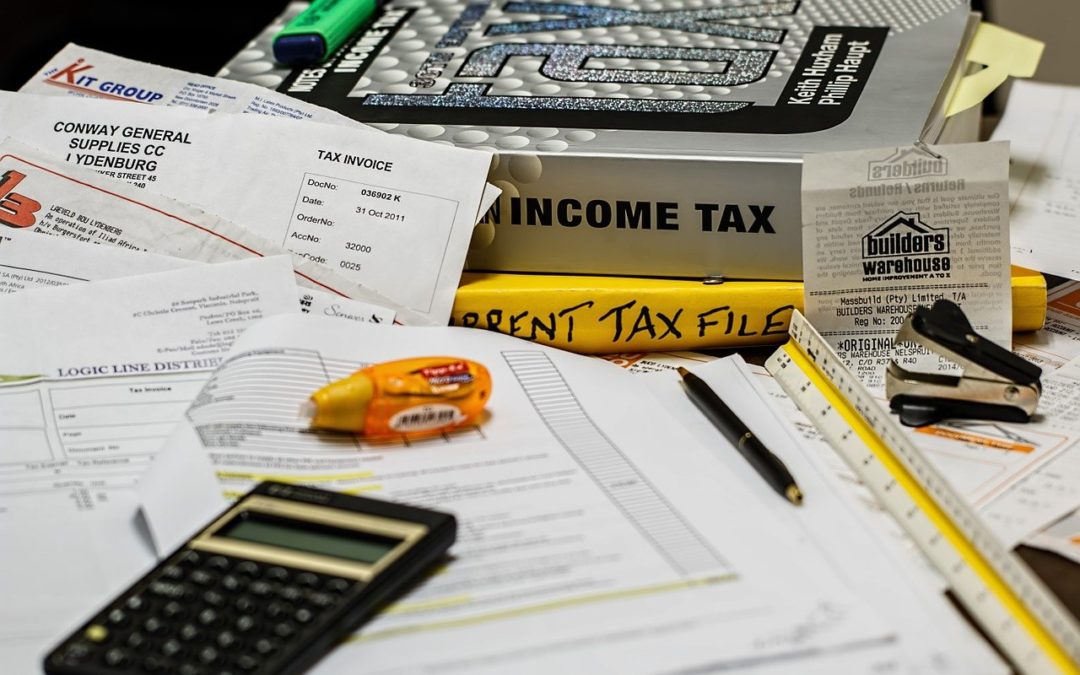
by admin | Feb 10, 2022 | Declutter
Much of what we recognise as mess are the large physical items that we can see the need to let go of. Financial clutter is less obvious to the eye and something that shows up perhaps in a series of folders, or envelopes that have been opened and perhaps not worked through. Often our actual banking arrangements can be without order and difficult to navigate.
How many bank accounts do you have versus how many do you use regularly?
What level of service do you receive from your bank as opposed to the service you would prefer?
How many dormant savings accounts or money passbooks do you have around the house?
Are all your paper bank statements in one place and easy to access in just five minutes?
As you look at the way you manage and monitor your finances ask yourself whether you could do this better and find the information you need faster than the time it currently takes you to locate the statements, dividends, savings records, pension information and tax payment records. The chances are high that you don't keep all your financial information in one place, that as new paperwork comes in to your home it does not systematically end up in the same place that you keep and store your financial records. This is simple to change, and requires only that you become conscious of it. Resolve this quickly and simply by keeping all financial records, statements and passbooks in the same location in your home.
What about the files, binders and unopened Financial Post that is stashed around your home and taking up useful shelf space or occupying the cupboard under the stairs? Get these all out and in one session go through them. If you have any papers that are more than a year old shred and dispose of them. A small shredder for your home will occupy far less space than the volume of unneeded statements, letters, documents and general papers that are taking up space in your life and adding to the stagnant energy. If you run a business from home you will need to check with your Tax or Revenue office about the timescale for keeping all financial transaction records, and comply with these requirements. In many cases keeping the detail for the past twelve months and good annual summaries for the previous five to seven years is more than adequate for you and allows for a lot of discarding.
So many Phone records, Bank statements, Insurance documents, Mortgage summaries and payment records can be accessed online and pulled down in Document or PDF format when needed. Review all your accounts and look at the options for switching to digital only records. This not only saves space but can also save you dozens of hours over the course of a year where you no longer have to open, sort, file and store paper that comes in to your physical mailbox.
Stay up to date with Financial Apps that allow you to track your spending or monitor your investment monies easily and all from your phone or laptop. Have you looked at installing a Water Meter to your home so you only get billed for your actual use? How about asking your Energy Company for a free Smart Meter to monitor your home usage of gas and electric? With these installed you can actively manage the way you use energy in your home, often adjusting your behaviour simply because you become aware of the cost of your usage. It can be tiring to deal with the potential mountain of financial paperwork that comes in to your home. Take a moment to consider that no matter how many sources the paperwork comes from you can choose what to do with each letter or email.
In your personal finances deal with each monthly summary statement as it comes in, whether by paper or email. Check the expenditure against your own receipts. An easy way to do this is to take any purchase receipts from your purse or wallet on a certain day each week and put them in a place where you do your finances. If you don't have any specific filing area at home, each week take the expense receipts for that week and place them in an envelope. When your bank statement comes in simply check off the purchase receipts against the larger monthly statement. Everything should match. If you are self-employed and doing your own tax returns save each weekly envelope and date it for easy reference later. When the full tax year is done you can provide the bank statements and the receipts to your book-keeper and you keep your costs down because you have taken the time to be organised for the previous year of spending.
In becoming better organised with our finances we can get closer to our financial goals, precisely because we know what our money is doing and how it is performing. By getting clear on your financial paperwork, statements and information, you will naturally find yourself better able to make decisions about what to do with your assets so that they start to work for you, building your future wealth and financial freedom. The clearer you get with your finances the more likely it is that your money will work better for you.
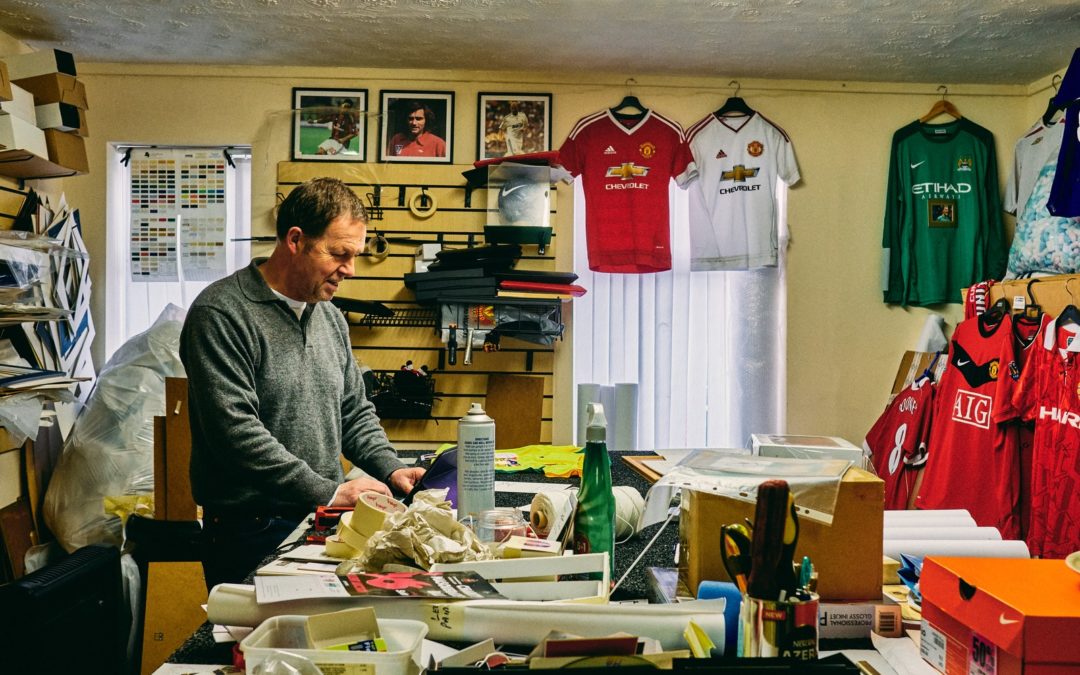
by admin | Jan 27, 2022 | Declutter
We hang onto family things because we are people with emotions and feelings. We assign value and meaning to everything we see or come into contact with. We have to do this to stop ourselves getting into total overwhelm or melt down when faced with a thousand and one choices every day.
You see a mahogany box that your uncle stored his love letters in from your aunty before she died and so you give that simple wooden box a value in your mind. You add to it all the memories of riding a bike from your own house as a kid to see your aunty Mabel and uncle Jack. You think of all the ice creams they bought you and some of the birthday presents for your first teenage birthday. All of this heavy emotional baggage attaches itself to the box. Now the box is not simply a 'box'. It has become a store of memory, a reflection of your childhood, a visual link to how you grew up and what you learned from good adult role models. It is so much more than wood and the pins that hold it together or the varnish that allows it to shine, or the crack in the back where it was once dropped on a pavement when your uncle moved into his care home as an elderly man. It has become a part of you. And you wonder why you find it hard to let go of the things in your life?
Everything has meaning and connection - good or bad - because we give such qualities and meanings to each thing we handle. You have my understanding and my empathy with this difficult process. Your home represents your sense of identity, of who you are to yourself as well as to those whose opinion you take on board. Your house or apartment is a mirror of how you feel about yourself and how you see yourself. The furniture, artwork, decorative style, clothing, photographs on display, all of these are elements of you.
Here are some themes of family clutter you might want to visit and consider whether the items are things to keep or to let go of.
Clothes: A shirt you wore on your wedding day, the suit you wore on the evening you met your wife, the wedding dress from that special day twelve years ago and which is still in the wardrobe. The graduation gown that you wore once but which is still in your wardrobe. Keep or Let Go.
Family Souvenirs: These are sometimes heirloom items which connect us to the larger family network and discarding them creates feelings of disloyalty. How about the walking stick and medals that were your grandfather's? The swivel leather chair and footstool that your Dad bought the week of his retirement in a colour you don't really like. The pocket watch that was worn by your great great grandfather. The clutch bag that belonged to your mother. A photo album from a wedding one hundred years ago and which you know is somehow connected to a relative, but you don't know which one. Do you Keep or Let Go?
Gift Items: A deluxe kitchen gadget you have only used a handful of times since it was given to you as a wedding gift or home warming present eight years ago. A framed picture of a country scene you really don't like, but which is on a bedroom wall because you were given it by your Great Aunt who you loved when you were younger, but who now you can't tolerate for her crankiness. She doesn't visit, but your parents do and they might comment critically if they didn't see the picture. Do you choose to Keep or do you Let Go?
When people spend money on a gift for us we can get in to all sorts of guilt where we don't like or appreciate the item they bought for us. How we see our relationship to them as the gift giver can affect the way we deal with the gift. Yet, it was just a gift, not a contract. We still allocate strong emotions to gifts we don't appreciate, especially where there is a chance the giver might enquire about our use of the gift at some future date, or at least where we think they will! The gift category of items we have among our clutter often presents some of the biggest emotional tussles when we try to let them go.
Comfort Objects from Childhood: How about the soft toys you had as a youngster or the comfort blanket you had first in your cot and then in your bed? A book collection that was relevant to you as a six year old, but you are now twenty seven! Keep or Let Go? Printed class photographs from your first year at school. A plastic crate of boxed games and toys that you might be keeping handy for your grandchildren, who are not born yet! A uniform or handbook from the scout group you were part of when you were ten and eleven, but which was three decades ago. A wooden baseball or cricket bat from teenage years when we played well at senior school level. Will you Keep or will you Let Go?
We don't set out to acquire rooms of stuff that we make little use of. Instead we attribute value to something because of the memory trigger it gives and the feelings it stirs within us. We allow this magical quality to settle on it and we end up struggling to know what to let go of because everything becomes special. All that we choose to keep has a powerful hold over us. But it is also clogging the space in your home and creating stagnant energy.
It's time to make some space and to change the feel of your living space. You deserve to make some changes. Don't complicate this process. When you pick up an item in your home you simply need to ask yourself, "Do I Keep or Let Go?" You will know what to do.





